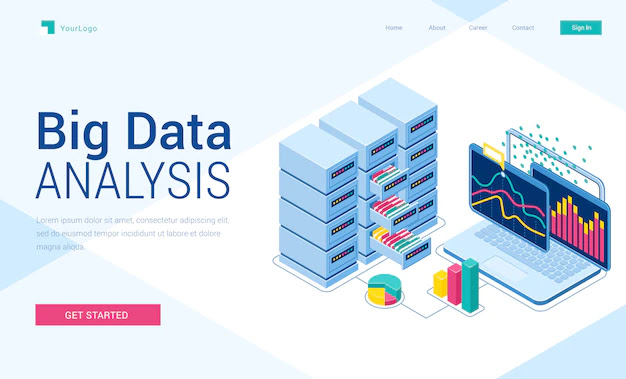
Insights for a Data-Driven World.
Introduction
In today's digital age, data analytics has emerged as a game-changer for businesses across various industries. It enables organizations to make informed decisions, gain valuable insights, and stay ahead of the competition. This article explores the world of data analytics, from understanding its core concepts to exploring certification programs, courses, career prospects, and the impact it has on businesses.
1.What is Data Analytics?
Data analytics refers to the process of examining large and complex datasets to uncover patterns, correlations, and trends. By leveraging statistical techniques, algorithms, and technology, data analytics helps organizations extract meaningful insights that drive informed decision-making. It involves collecting, cleansing, transforming, and analyzing data to derive actionable insights.
2.The Role of a Solutions Architect - Data Analytics - Core
A Solutions Architect - Data Analytics - Core is a crucial role within organizations. They bridge the gap between technical expertise and business requirements. These professionals are responsible for designing, implementing, and maintaining data analytics solutions. They collaborate with stakeholders, data scientists, and engineers to ensure data analytics projects align with the organization's goals and objectives. Their expertise lies in understanding the business context, identifying data requirements, selecting appropriate technologies, and providing scalable and efficient solutions.
A Solutions Architect - Data Analytics - Core is a crucial role within organizations. They bridge the gap between technical expertise and business requirements. These professionals are responsible for designing, implementing, and maintaining data analytics solutions. They collaborate with stakeholders, data scientists, and engineers to ensure data analytics projects align with the organization's goals and objectives. Their expertise lies in understanding the business context, identifying data requirements, selecting appropriate technologies, and providing scalable and efficient solutions.
3. Google Data Analytics Certification
The Google Data Analytics Certification is a comprehensive program designed to equip individuals with the skills needed to analyze data effectively. It covers various topics, including data collection, transformation, visualization, and data-driven decision-making. Obtaining this certification not only validates one's knowledge but also enhances career prospects in the field of data analytics. The certification program offers hands-on projects and assessments to ensure practical understanding.
4.Big Data Analytics.
Big data analytics focuses on processing and analyzing large and complex datasets that traditional data processing techniques struggle to handle. With the exponential growth of data, organizations can harness big data analytics to gain deeper insights and make data-driven decisions. This section explores the challenges and opportunities associated with big data analytics, as well as the tools and technologies used to extract meaningful insights from vast datasets.
5. Data Analytics Courses
Formal education and training play a vital role in building a strong foundation in data analytics. This section delves into the different types of data analytics courses available, such as online certifications, boot camps, and degree programs. It discusses the benefits of enrolling in such courses, the topics covered, and the skills acquired. Factors to consider when choosing a data analytics course, such as curriculum relevance, delivery method, and instructor expertise, are also discussed.
6. Data Analytics Salary
Data analytics professionals are in high demand, and their salaries reflect the value they bring to organizations. This section explores the factors that influence data analytics salaries, including experience, skills, industry, and location. It provides insights into the average salaries of various job roles within the field, such as data analyst, data scientist, and data engineer, helping individuals understand the earning potential in the industry.
7. Masters of Data Analytics
A Master's degree in Data Analytics offers in-depth knowledge and specialization in the field. This section delves into the significance of pursuing a master's program, including the advanced concepts and skills gained. It discusses the curriculum, specialization options, and the career prospects that open up with a master's degree in data analytics.
Conclusion
Data analytics has become a crucial driver of success in today's data-driven world. Organizations are increasingly relying on data analytics to gain a competitive edge and make strategic decisions. From exploring patterns in customer behavior to optimizing operational efficiency, data analytics has the power to transform businesses across industries.
In this article, we have covered various aspects of data analytics, starting with the definition and importance of data analytics in today's digital landscape. We then delved into the role of a Solutions Architect - Data Analytics - Core, highlighting their responsibilities and the skills required for the position.
The article also discussed the Google Data Analytics Certification program, emphasizing its benefits and the topics covered in the certification. It highlighted the significance of big data analytics, addressing the challenges and opportunities associated with analyzing large datasets. Tools and technologies used in big data analytics were also explored.
Furthermore, we provided insights into data analytics courses, emphasizing the importance of formal education and training. Factors to consider when choosing a data analytics course were discussed, empowering readers to make informed decisions about their educational journey.
The section on data analytics salary shed light on the earning potential in the field. By understanding the factors that influence salaries and comparing different job roles, readers gained a comprehensive understanding of the financial prospects in data analytics.
Lastly, we explored the benefits of pursuing a Master's degree in Data Analytics. The curriculum, specialization options, and career prospects associated with a master's degree were discussed, providing a deeper understanding of the opportunities available to individuals seeking advanced knowledge in the field.
In conclusion, data analytics has revolutionized the way organizations operate, enabling them to extract valuable insights from vast amounts of data. From certifications to courses and advanced degrees, there are numerous avenues for individuals to gain expertise in data analytics. As businesses increasingly rely on data to drive decision-making, the demand for skilled data analytics professionals will continue to rise. By embracing the power of data analytics, individuals can unlock a world of opportunities and make a significant impact in today's data-driven world.





.webp)



.webp)






.jpg)

No comments:
Post a Comment